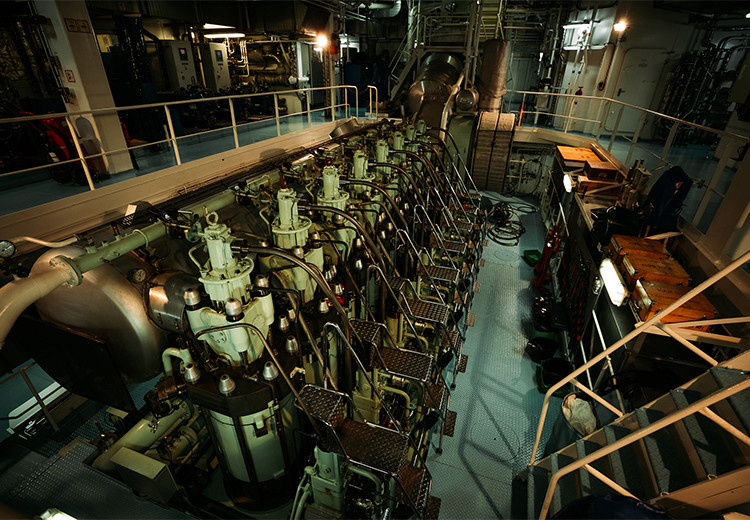Videos
Lubricating heavy-duty hydrogen engines
16 April 2024
09 June 2020

Traditionally, marine diesel cylinder lubricants have been formulated with a high base number, indicating significant amounts of detergent included in the finished oil. However, the introduction of the IMO 2020 sulphur cap means formulations are having to change.
Traditionally, marine diesel cylinder lubricants have been formulated with a high base number, indicating significant amounts of detergent included in the finished oil.
However, the introduction of the IMO 2020 sulphur cap means formulations are having to change.
For years, marine lubricants have had to operate in high sulphur fuel oil environments. As a result, the acid neutralisation performance of the detergent in the lubricant has been critical, helping to neutralise strong acids from the sulphur in the fuel, providing much needed protection, and most importantly, cleaning the metal surfaces in the engine.
As sulphur in the fuel drops, so does the requirement for high levels of base number in the lubricant. But if you remove the base from the lubricant, you can also remove the detergency power and risk losing the ability to achieve the required level of engine cleanliness, posing potentially catastrophic problems for operations.
This is why Infineum has been developing next generation marine lubricants. These lubricants have been formulated with a lower base number but are still capable of delivering the outstanding cleanliness performance levels that OEMs demand, even as the industry moves to the new ultra-low sulphur environment.
The lubricants being tested in our latest MDCL field trials have demonstrated excellent field-proven results after 1,000 hours of operation, and when we inspected the test pistons, we were delighted with the results.
(Denise 05:50) The very important thing is pretty much the piston – how clean the piston is. This is pretty much what this field trial, I can say, is all about. And we have tested two of our new low BN MDCL lubricant technologies. And from these results what we can say definitely is that our products show better performance than the low BN commercial reference oil, which has a good reputation in this field.
A shift in detergency technology isn’t the only challenge arising for marine lubricants from the IMO 2020 legislation.
As refineries adapt to the new low sulphur fuel requirements of the marine industry, Infineum anticipates a significant impact on Group I base stock availability – historically the base stock of choice for formulating marine diesel cylinder lubricants.
The feedstock for Group I base stocks is VGO; the same feedstock required for low sulphur fuel oils. Meaning refineries are going to have to prioritise creating one over the other, depending on which they believe is more commercially valuable to their operations.
Group I availability is further impacted by trends in automotive lubricant formulations, with crankcase formulations shifting to higher quality base stocks, resulting in a number of capacity reductions and plant closures around the world.
As a consequence, it’s critical that we test our lubricants in a range of base stocks, not only Group I base stocks… providing the coverage the market needs.
(Denise 05:00) So with this current field trial we tested in Group II base stocks, and a lot of people might wonder why we’re testing in Group II – because the base stock industry trend is moving towards better quality base stock. Some of the Group I refineries are changing over to Group II refineries, which means a lot of our customers will require base stock flexibility depending on the situation.
A lot of our products have Group I approvals, so with this field trial now we have some coverage for Group II.
As the new legislation and new fuels hit the market, ship operators will have multiple routes they can take to comply with the sulphur cap. Formulating lubricants that deliver top-tier performance in the new environment will take skill and testing them in real-world field trials will continue to be of critical importance.
As the marine industry evolves and adapts, Infineum will continue to draw on its experience gained from decades of formulating and field-testing market-leading additives, to ensure the next generation of marine lubricants are able to provide performance the marine industry can rely on.
Sign up to receive monthly updates via email